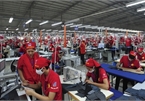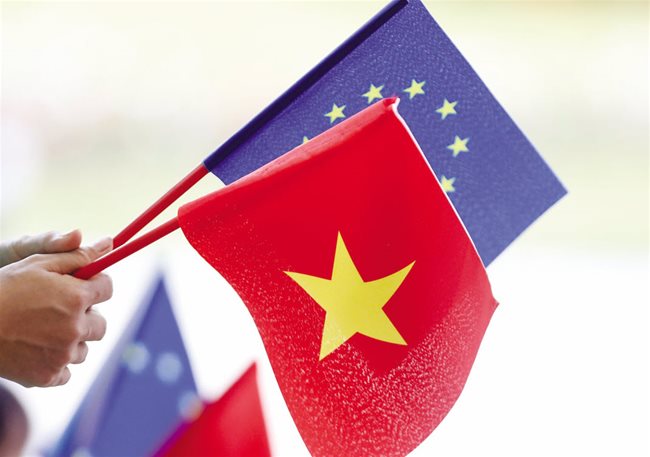|
The EVIPA will officially take effect for Vietnam after 30 days from the date the country notifies to the European Union authorities (Article 4.13.2).
The biggest difference between the EVIPA and common international free trade agreements like the Comprehensive and Progressive Agreement for Trans-Pacific Partnership (CPTPP)(1) or the EU-Vietnam Free Trade Agreement (EVFTA)(2) is the agreement does not regulate tariff cut and market opening for goods and services, but sets up the investment dispute settlement mechanism for EU and Vietnam investors instead. Once effective, the EVIPA will encourage and protect investment across the board for all EU members and replace 21 out of 67 bilateral investment treaties (BITs) which Vietnam has signed separately with EU members since 1990(3). Once an investment dispute arises, EU investors in Vietnam or Vietnamese investors in the EU will have the rights to negotiation and/or mediation. If this effort fails, investors can file a lawsuit with the permanent arbitration council in charge. The council comprises three members in the list of nine arbitrators designated earlier by Vietnam and the EU. In case the parties to the dispute do not agree with the verdict of this first-instant arbitration council, they can make an appeal to the appeal arbitration council. This is also a permanent arbitration council with three out of six arbitrators. Benefits The arbitration mechanism of the EVIPA will benefit Vietnamese investors in the EU because the agreement allows Vietnamese enterprises intending to sue the EU to designate one of the three Vietnamese arbitrators as the first-instant arbitrator, and, in case of appeal, one of the two Vietnamese arbitrators as the appeal arbitrator. In other words, whether the arbitration council is at the first-instant or the appeal level, there is always a Vietnamese arbitrator among the three arbitrators of the corresponding arbitration council (Article 3.38.6 and Article 3.39.8 of the EVIPA). Obviously, this will give Vietnamese investors more confidence over the protection for their investments in the EU than the case where all the three arbitrators are foreigners. Previously, Vietnam only recognized the authority for investment dispute settlement by the court of the host country and/or the one-level investment arbitration. Therefore, when there is a dispute arising from investment overseas, Vietnamese enterprises hesitate to file a lawsuit for fear that the foreign court will have an unfair, biased award. Further, the one-level investment arbitration mechanism under the BITs is very costly and risky, as the financial capacity of Vietnamese enterprises is more limited against the budget of the host country to allow them to pursue lawsuits for international investment disputes. Meanwhile, the award of the one-level arbitration council cannot be altered, except for small errors like spelling mistakes. So, it can be said that the lawsuit for international investment disputes at the one-level investment arbitration by Vietnamese enterprises is nearly like “throwing eggs against rocks.” Meanwhile, in view of dispute settlement, the EVIPA gives many advantages to enterprises. Previously, some arbitrators were protested by disputing parties due to conflict of interests, as those arbitrators had assumed many roles, such as lawyers, experts and arbitrators for disputes related to the disputing parties. An example is the cases of investment disputes where foreign investors protested against Argentina and Venezuela. Many arbitrators were protested because they had defended or counseled one of the two disputing parties in previous lawsuits. With the EVIPA, it is recognized that proving the conflict of interests between arbitrators and the disputing parties is actually impossible. Therefore, instead of asking arbitrators of the one-level arbitration council under the BITs to “self declare” information about conflict of interests, the EVIPA rules that arbitrators must choose the settlement of international disputes as a permanent, continuous paid job over a certain period to be more specialized and impartial and to minimize cases of conflict of interests. This two-level arbitration mechanism applies not only for Vietnamese investors in the EU but also for EU investors in Vietnam. With this mechanism, EU enterprises can have more motivation to participate in merger and acquisition (M&A) with Vietnamese enterprises, especially in M&A with a value of 50% of shares of an enterprise (Article 1.2 (c)(i) of the EVIPA), because they can sue the Vietnamese Government at the two-level arbitration once there are disputes. Bottleneck? To restrict lawsuits against the governments of parties to the agreement, the EVIPA affirms that the representative offices of EU enterprises in Vietnam or those Vietnamese enterprises in the EU are not investors (Article 1.2(ii), quotation 2 of the EVIPA). Therefore, representative offices of EU enterprises in Vietnam and those of Vietnamese enterprises in the EU member countries cannot initiate a lawsuit against the host government at this two-level arbitration mechanism if they have disputes with that government. In the lawsuit by Recofi against Vietnam in 2013, the arbitration council and the court in Switzerland refused the file of Recofi because the arbitration council argued that Recofi only had a representative office in Vietnam and did not make any investment except expenses arising from the administrative cost for operating the office(4). In legal terms, under Article 45 of Vietnam’s 2014 Enterprise Law, the representative office is an affiliate of an enterprise responsible for authorized representation for and protection of its interests. Under Article 52 of the 2014 Investment Law, investments overseas by Vietnamese enterprises do not include opening representative offices there. However, in economic terms, it’s easy to recognize that Vietnamese enterprises always need a certain sum to buy or lease an office, recruit employees and pay salaries and insurance for them, and even to pay the principal operational cost. This expense is nothing other than an investment. It’s undeniable that opening a representative office is the first step for a Vietnamese enterprise to search the market and promote trade to gradually invest more in a certain foreign market. What is the thing for Vietnamese enterprises to do when they have to bear risks for this “preliminary” expense for the representative office? Do they have other more effective and impartial dispute settlement mechanisms to protect their interests? Prevention better than cure The elimination of representative offices from the scope of investment under the EVIPA more or less restricts the opportunity to protect the investments in representative offices in the EU of Vietnamese enterprises. However, in terms of the interest of the Vietnamese Government, this regulation clearly helps restrict the number of international investment suits initiated by EU representative offices in Vietnam, especially in the context that Vietnam is the EU’s second largest trade partner in Southeast Asia after Singapore and is expected to receive a wave of investments by small and medium enterprises from the EU. Overall, the EVIPA is expected to reduce the concern for Vietnamese investors in the EU when there is a change in the investment legislation such as tax, environment and other policies for the interest of the community there. The agreement also restricts the risk for the Vietnamese Government to face lawsuits by EU enterprises, especially by EU representative offices in Vietnam. This is a sustainable solution for the State and enterprises to share risks and to win in the global economic integration. SGT Dr. Le Thi Anh Nguyet(*)
(*) Senior lawyer of Phuoc & Partners Law Company, member of the scientific council of the Vietnam International Arbitration Center. (1) The CPTPP was signed by Vietnam, Australia, Brunei, Canada, Chile, Japan, Malaysia, Mexico, New Zealand, Peru and Singapore on March 3, 2018 and was effective from December 30, 2018. (2) The EVFTA was signed between Vietnam and the 27-member EU on June 30, 2019 and was approved by the European Parliament on February 12, 2020 and Vietnam’s National Assembly on June 8, 2020. (3) https://investmentpolicy.unctad.org/international-investment-agreements/countries/229/viet-nam?type=bits, updated June 12, 2020. (4) https://www.italaw.com/sites/default/files/case-documents/italaw7631.pdf, updated June 6, 2020. |
||

EVFTA promises an enhanced Vietnam
The National Assembly has passed the EU-Vietnam Free Trade Agreement and the EU-Vietnam Investment Protection Agreement, ushering in a new economic, trade, and investment co-operation outlook for both Vietnam and the EU.

Circular about origin rules in EVFTA issued
Minister of Industry and Trade Tran Tuan Anh has signed Circular 11/2020/TT-BCT about rules of origin in the European Union – Viet Nam Free Trade Agreement (EVFTA).
